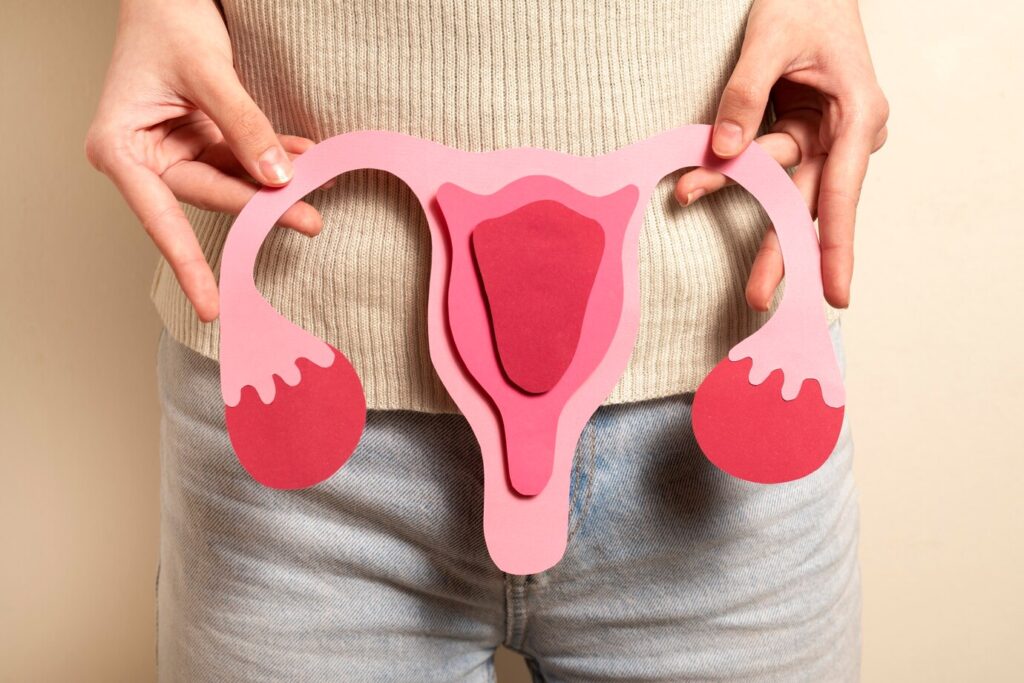Menopause Management
- Home
- Menopause Management
Personalized Menopause Care for Every Woman
by Dr. Shruti Sharma
Menopause is a natural transition in a woman’s life, typically occurring between the ages of 45–55. It marks the end of menstrual cycles and fertility but can bring physical and emotional changes that require expert care. At Dr. Shruti Sharma’s clinic in Karnal (India), we specialize in providing compassionate and personalized menopause management.
We help women navigate symptoms such as hot flashes, mood swings, sleep disturbances, weight changes, and bone health concerns. Our goal is to ensure that every woman experiences a smooth and healthy transition with customized medical and lifestyle solutions. Whether you’re approaching menopause or already experiencing it, we are here to guide you with advanced treatments, emotional support, and complete privacy.

What Is Menopause Management?
Menopause management focuses on relieving symptoms, preventing health risks, and enhancing quality of life during and after the menopausal transition.
At Dr. Shruti Sharma’s clinic, the process starts with a comprehensive evaluation including medical history, symptom assessment, and blood tests to check hormone levels.
Treatment plans may include lifestyle modifications, hormone replacement therapy (HRT), non-hormonal medications, bone health management, and emotional support therapies.
Each woman’s care is customized to manage current symptoms and prevent long-term issues like osteoporosis, heart disease, and cognitive decline.
Diagnosis and Stages of Menopause
Perimenopause:
Begins several years before menopause. Symptoms like irregular periods, hot flashes, and mood changes start appearing.
Menopause:
Officially diagnosed after 12 consecutive months without a menstrual period.
Postmenopause:
Refers to the years after menopause, where symptoms may ease but health risks can increase.
We use detailed consultations, hormone profiling, bone density scans, and preventive screenings to create a full health map for your future.
Medical & Lifestyle Treatment Options
Medical Treatments:
• Hormone Replacement Therapy (HRT) to ease hot flashes, night sweats, and vaginal dryness
• Non-hormonal medications to manage mood changes and sleep disturbances
• Calcium, Vitamin D, and supplements to maintain bone strength
• Regular health screenings for heart, bone, and breast health
Lifestyle Counseling:
• Personalized diet and exercise plans
• Stress management strategies
• Sleep improvement guidance
• Support groups and emotional well-being programs
Advanced Care When Needed:
• Bone health management for osteoporosis prevention
• Cardiovascular risk assessment and preventive care
• Vaginal laser therapies for persistent dryness or discomfort
Living with Menopause – What You Should Know
- Menopause is a natural life stage, not a disease.
- Symptoms vary – some women have mild changes, others need medical support.
- Treatments are safe and tailored to your personal health history.
- Early care can prevent long-term complications like bone loss and heart disease.
- Emotional health is equally important – support is available.

What to Expect During Evaluation & Treatment?
Your first consultation will involve a detailed discussion of your symptoms, menstrual history, lifestyle, and health risks. Diagnostic steps may include:
• Hormone level testing
• Bone density scan (DEXA)
• Cholesterol and heart risk profiling
• Thyroid function tests
Based on findings, Dr. Shruti Sharma will create a personalized treatment plan. All treatments are explained clearly, with continuous support throughout your menopause journey.
FAQ: Menopause Management
If you are experiencing troublesome symptoms like hot flashes, sleep problems, mood changes, or irregular periods that affect your daily life, it’s a good idea to consult a specialist. Early support can make the transition smoother and protect your long-term health.
Common symptoms include irregular periods, hot flashes, night sweats, mood swings, vaginal dryness, sleep disturbances, weight gain, and reduced bone density.
HRT can be very effective but may not be suitable for everyone. Dr. Shruti Sharma carefully evaluates your personal and family medical history before recommending HRT or alternative treatments.
Yes, lifestyle changes like a healthy diet, regular exercise, stress reduction techniques, and certain supplements can help manage mild to moderate symptoms. These can also be combined with medical treatments when needed.
Symptoms typically begin during perimenopause and can last anywhere from a few months to several years. On average, symptoms persist for about 4–5 years, but this varies for each woman.
Our Latest Blog
5 Common Myths About Birth Control—Debunked
When it comes to birth control, there’s a lot of confusion…
Pregnancy Care: Essential Tips for Expecting Mothers
Pregnancy is a beautiful and life-changing journey. It’s a time filled…
PCOS and You: Tips for Managing Symptoms and Living Healthily
Polycystic Ovary Syndrome, or PCOS, is a common hormonal disorder that…



